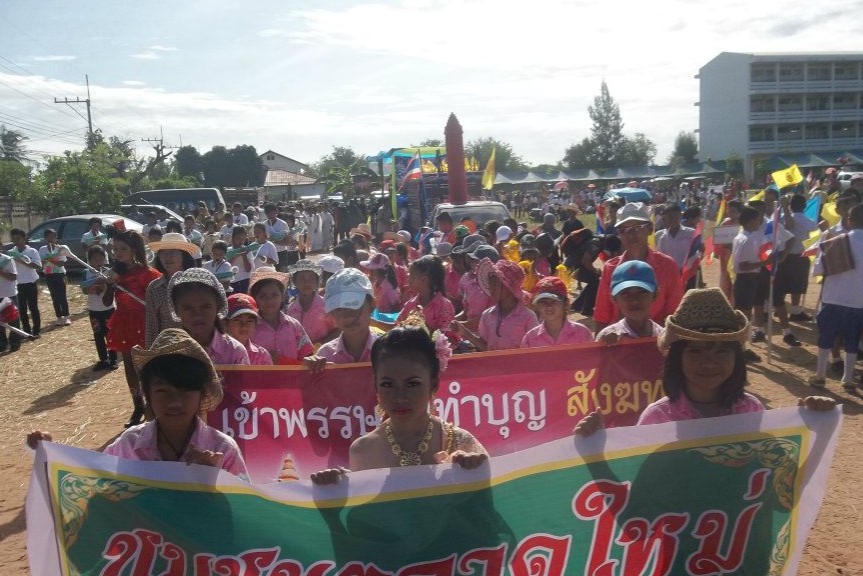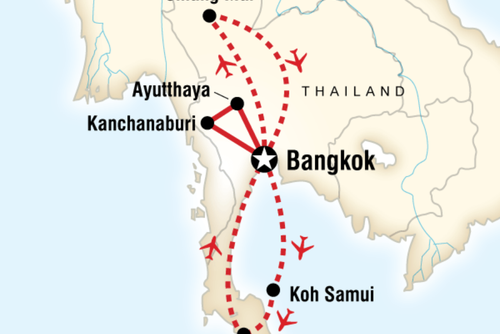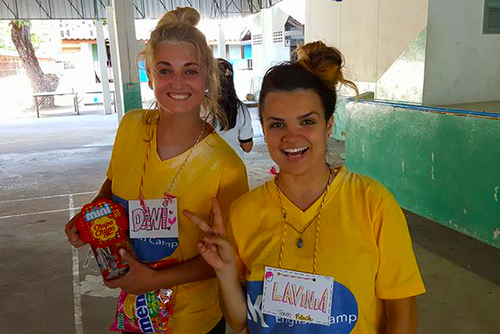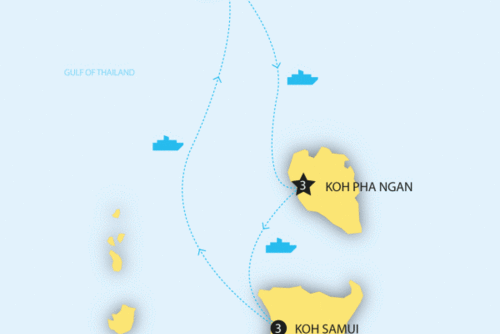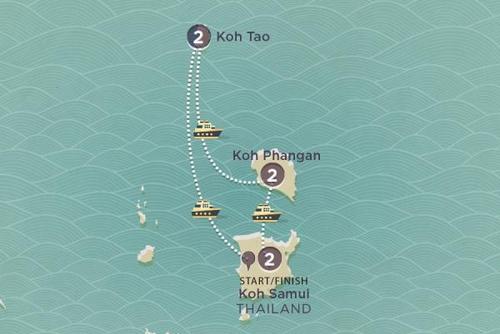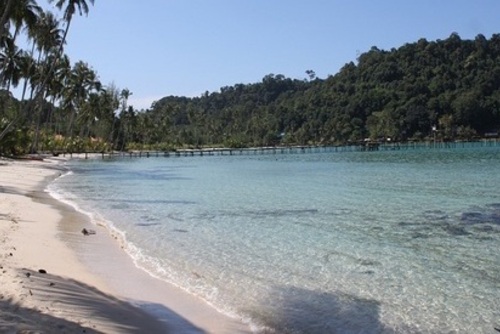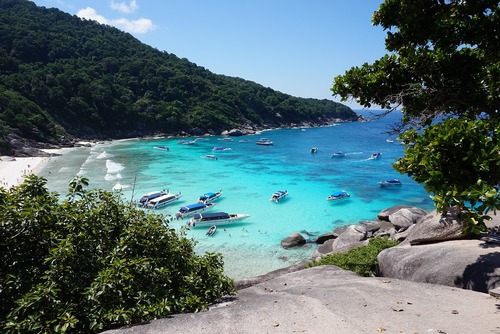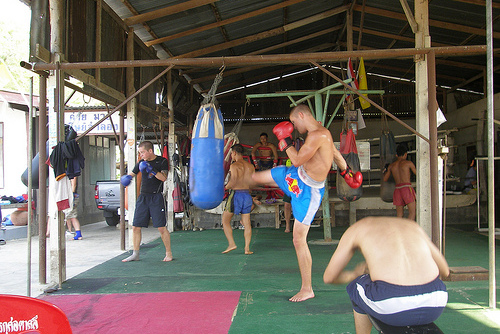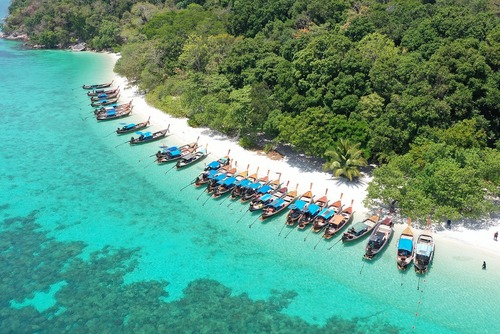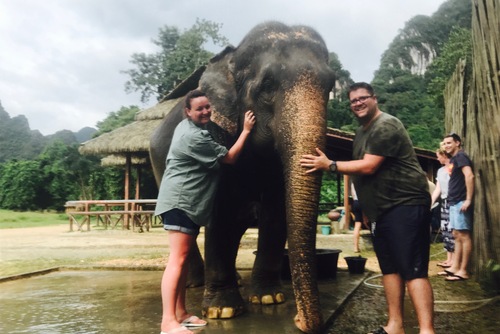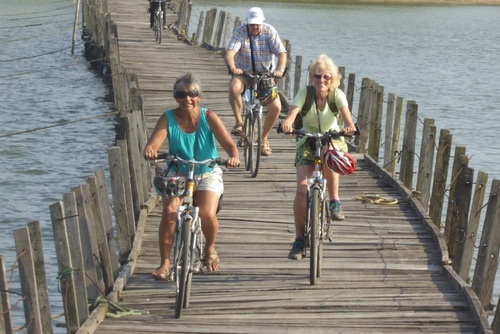Emily Andrews from the UK was keen to work abroad and she decided to take a teaching course in Thailand which was the beginning of an exciting new adventure.
Emily worked in Nakhon Ratchasima (Khorat), a lesser known city in north-east Thailand away from the tourist crowds. Here she shares her experience and the reality of teaching English in rural Thailand.
Taking a TEFL Course with TEFL Heaven
My experience teaching English to Thai students allowed me to experience the country in a new way.
TEFL Heaven’s USP is that it combines teaching placements with TEFL courses in Thailand which are actually in the country where you plan to teach, usually in an exotic and enticing location.
I did my course in Koh Chang, one of the lesser known Thai islands, and taught in the north east; an area which is still almost unknown among British tourists.
Getting Off the Beaten Track for an Authentic Experience
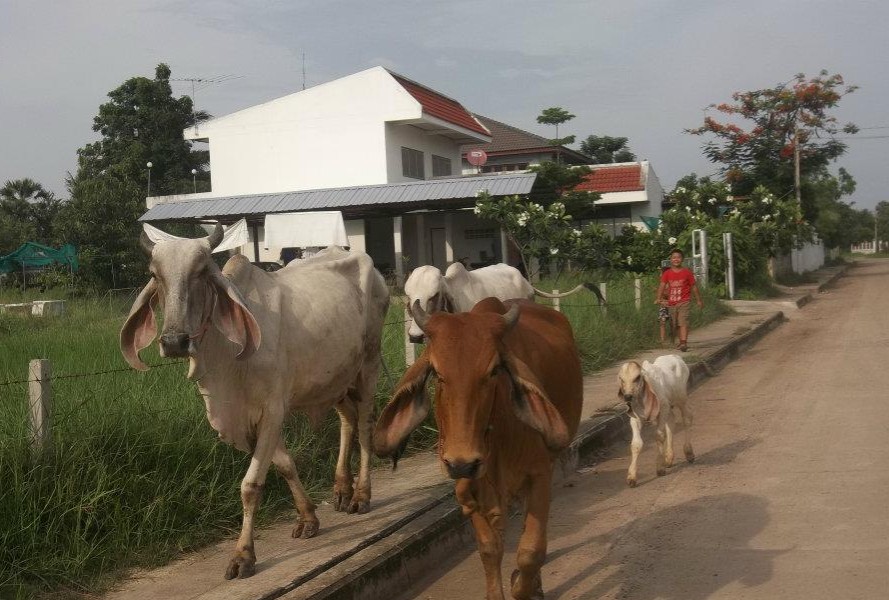
While the majority of young backpackers tick-off Bangkok, Koh Phi Phi, Koh Tao and the other Kohs, as well as perhaps Chang Mai in the North, we were able to know an entirely different Thailand, which didn’t have much to do with that scene.
It wasn’t always fun, and it was often challenging, but in return we received an authentic insight into Thai culture, its people, its food and even its language.
I learnt that no one is wearing bikinis away from the tourist beaches. Where I lived in Khorat (Nakhon Ratchasima), women wouldn’t wear tops that revealed their shoulders. I quickly slipped into that mindset and felt scandalous on a night out with my western friends while wearing a sleeveless dress.
There are very few westerners in north-east Thailand. Even in Khorat city, which was an hour away from the village where I lived, people would do a double-take as you walked by. The only westerners were TEFL teachers or the odd, older, European man who, upon liking his new-found status in the country decided to stay.
Unfortunately, if the white men that we met in the farang (foreigner) bars were anything to go by, the stereotypes are all too true. However, most of them were quite old and had been there a long time. Hopefully, that particular tradition is fading in modern Thailand.
Working in Thailand
TEFL Heaven teachers were all placed in secondary schools. One of the major cultural differences was a disregard for timetabling. It was surprising to all the TEFL teachers how often classes would be cancelled for various special days and celebrations.
Thai people really value their calendar of festivities, which is lovely for community and was much appreciated by the students, but sometimes baffling to teachers used to a more strict, western approach who’d had their class cancelled three weeks in a row!
Thai Food is Delicious
The importance of food in Thai culture is well documented, but not overestimated. Admittedly, I am a foodie, but some of my standout memories are of the food we shared.
From the barbeques to the smart restaurant in the city where a teacher whose birthday it was treated us all to a meal, to the daily, delicious, hot meal my fellow farang teachers and I enjoyed each day at lunchtime for the equivalent of £1 – we had some really memorable meals.
We’d also buy chopped fruit in small, clear bags from village street vendors, a cocktail stick pointing out of the bag and a sachet of chili and sugar inside.
We would eat skewered grilled pork and chicken, and mini sausages, from the night market, and we’d retreat to the 7/11 right after school to enjoy the village’s only air conditioning and buy slushies.
Becoming a TEFL Teacher in Thailand
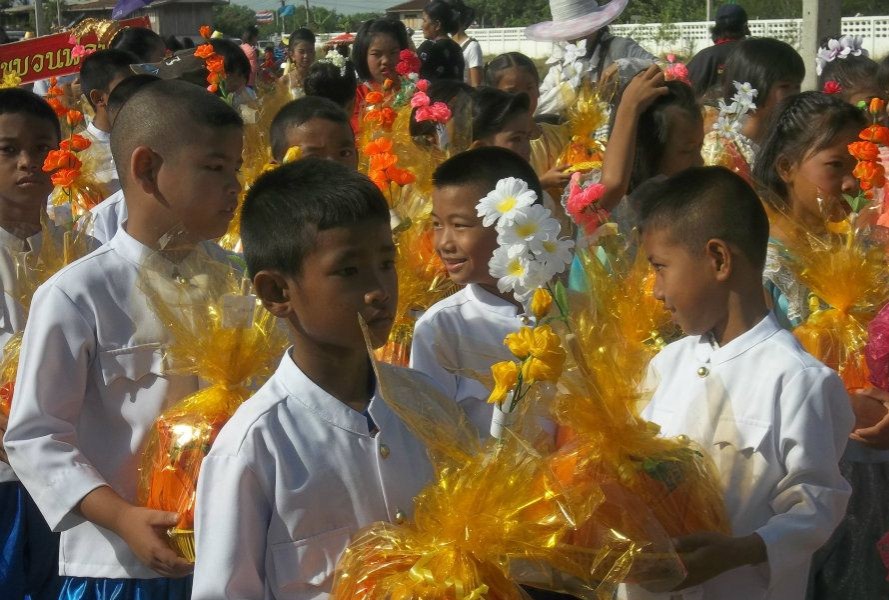
The sight of us white teachers at the front of the classroom in our badly-fitting shirts, (it’s not easy to buy western-sized clothes in rural Thailand) sweating under the slowly-whirring ceiling fans was a source of great entertainment and confusion to the Thai students who were perfectly cool and composed in comparison.
I taught 10 classes of up to 50 students, the class sizes being another key difference between British and Thai schools. The high sets were incredible sharp and well behaved and, as you can imagine, the lowest sets were not as attentive.
We were told most of them will leave school at 15 or 16 to work at their families’ farms – why would they show an interest in learning English from these strange foreigners.
Reality of Teaching English in Thailand
I spent a term, around four months, in the school altogether. We were well-paid relative to standard Thai salaries, earning enough to live in comfort.
We didn’t have a lot of prolonged free time, and given that the nearest coast was 13 hours away, we slowly paled without access to the beach. We did however visit the amazing national park, Khao Yai, where we camped and saw baboons and a six-foot crocodile while on a hike.
We also spent a lot of time on coaches, visiting the other TEFL teachers we trained with in other strange, north-eastern cities, where we careened around on motorbikes.
We also spent a substantial amount of time schlepping around the mall in Khorat, where, again, there was air conditioning and we could buy pizza. Trust me, no matter how delicious Thai food is, those cheese cravings will get you!
Plenty of Time to Enjoy Thailand
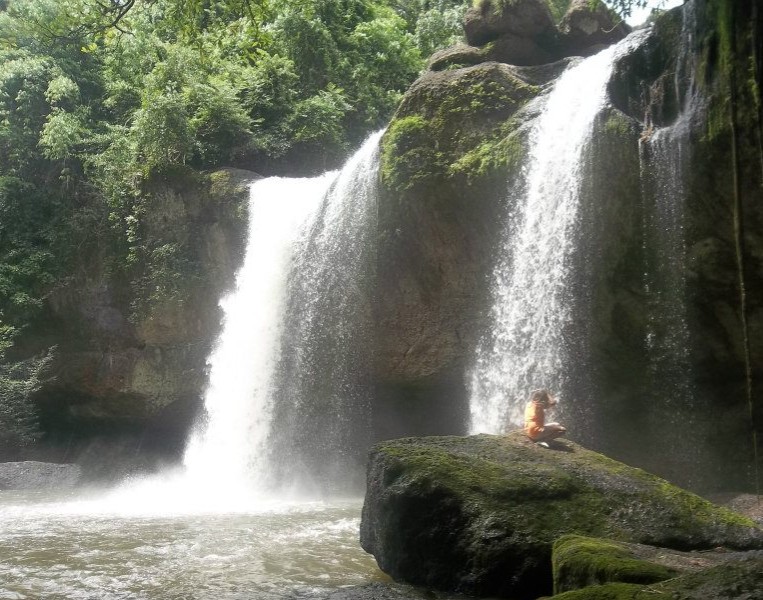
We did also get to do a bit of the backpacker scene; we were certainly not above that. After six weeks training on Koh Chang, a beautiful island that’s a popular tourist spot with middle-class Thais, we went to Bangkok to receive our certification.
After joining with other TEFL teachers we had a week off to enjoy ourselves before school started. A group of 13 of us went to the Full Moon Party on Koh Phangan, which was a whirlwind of fun. Check Full Moon Party dates and experience this legendary beach event, it really is wild.
We stayed in nearby Koh Samui which is one of the most beautiful islands in Asia and it has plenty in common with popular UK tourist spots, such as those in Spain or the Canary Islands. As a nation, we certainly have a knack for ruining beautiful places!
You could book Thailand backpacker tours to see as much of the country as possible, you get lots of free time.
Thailand & the Whole Experience was Amazing
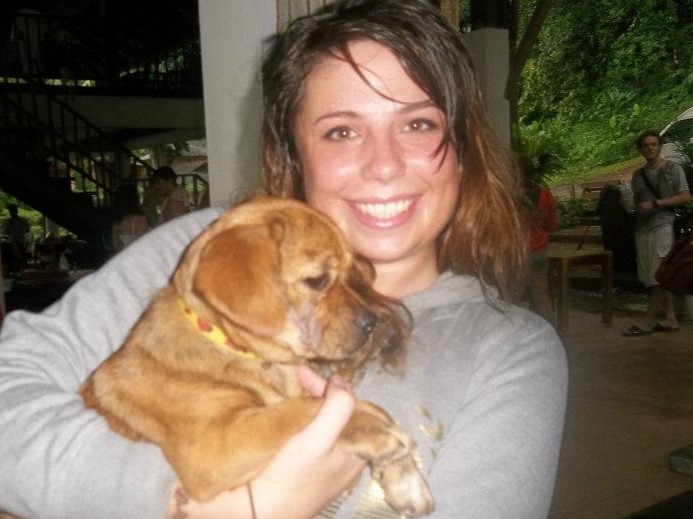
Working in Thailand was a great way to experience a side of Thailand few foreigners get to see.
Living in the north east, it could be isolating, there were times we felt misunderstood or like we wanted to be less visible, but we met some great local people, learned about their lives, taught some wonderful children and were lucky enough to be able to explore a country that has an extraordinary amount of natural beauty.
I wouldn’t change the experience for the world.
If a similar experience appeals to you search teaching jobs in Thailand or book a TEFL course with TEFL Heaven.
By Emily Andrews

